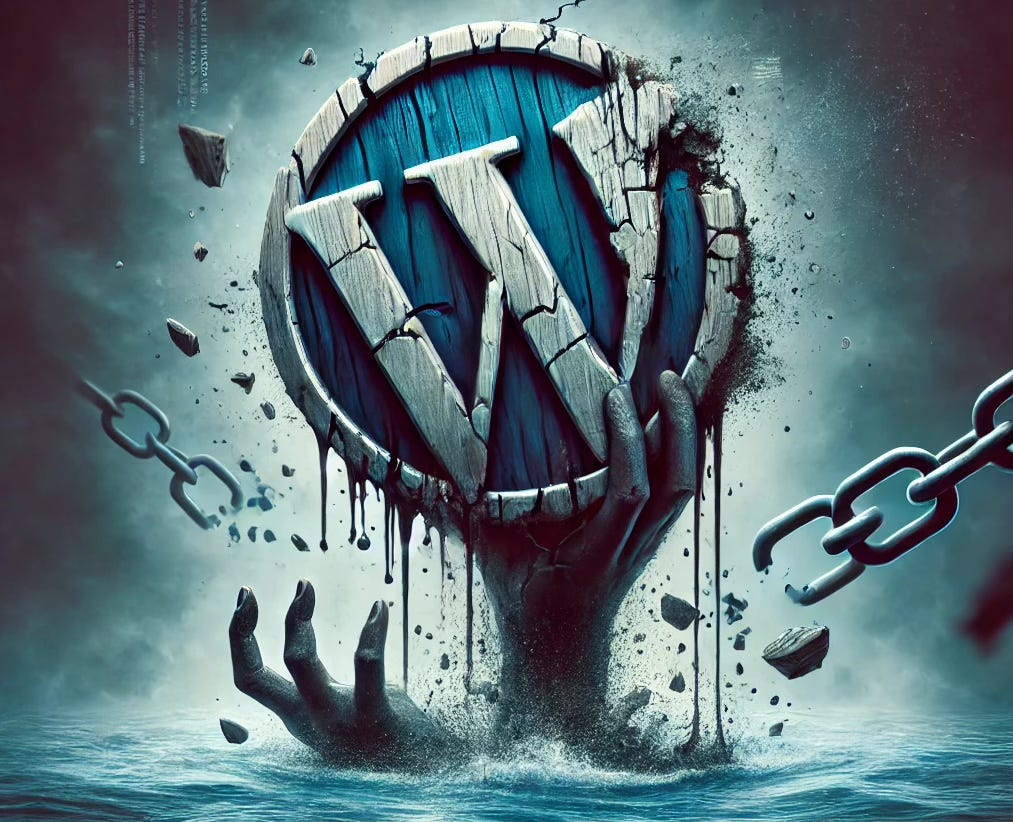WordPress is Losing Its Way: The Cost of Immaturity at the Top
WordPress is destroying itself with leadership scandals. The brand's reputation is crumbling under public controversies and poor management.
For over 16 years, I've not only been developing with WordPress but also conducting business with it. Throughout this time, I have witnessed the platform grow from a simple blogging tool to a full-fledged CMS that has transformed the digital landscape. Yet, recent events have left me feeling deeply embarrassed by my association with WordPress. The damage being inflicted is not from outside competition but from within—particularly by the actions of its co-founder and CEO, Matt Mullenweg.
Twitter (X) Meltdowns and Public Disputes
Mullenweg has recently turned social media into a battleground, where he engages in public spats, reprimands critics, and even blocks those who challenge him. These actions might be excusable for a novice or an independent influencer, but not for the leader of a global, community-driven platform. WordPress has always stood for collaboration and openness, and seeing its co-founder stoop to petty online altercations feels both unprofessional and shocking.
One particularly notorious example involves his public disagreements with WP Engine, a prominent company in the WordPress ecosystem. Such issues should be discussed privately, not paraded in a manner that fractures trust and weakens the community's morale. This kind of behavior only distances WordPress from the developers, businesses, and agencies that rely on it to succeed.
Structural Damage and Corporate Decay
These social media meltdowns are symptomatic of a deeper problem: the weakening of WordPress’s structural integrity and corporate strategy. When leadership acts impulsively, it sends a negative signal about the platform’s stability. Trust in WordPress has already been eroded due to ongoing security vulnerabilities in plugins and themes, leaving users increasingly exposed to cyberattacks. These are issues that should be the primary focus, yet the platform’s leadership is busy fighting on social media.
Instead of addressing these challenges, WordPress leadership has opted for public battles that sow confusion and erode confidence. This behavior detracts from the platform’s core strengths and sends the wrong message at a time when professionalism and unity are desperately needed.
Competitors Capitalize as WordPress Falters
While WordPress engages in internal conflicts and public relations disasters, competitors are capitalizing on the opportunity. They are prioritizing what WordPress has long neglected—user experience, security, and robust service offerings. These platforms are not distracted by personal disputes or damaged public relations; they are laser-focused on winning over users and businesses who are now reconsidering their commitment to WordPress.
The result is clear: WordPress, through its own misguided actions, is creating a scenario where it is easier for competitors to lure away disillusioned users and developers. The platform’s leadership is effectively handing over the advantage on a silver platter.
A Veteran Developer’s Perspective
After dedicating more than 16 years to developing with and building businesses around WordPress, witnessing this turmoil is beyond frustrating. The platform and brand I once championed now stand as a shadow of their former selves, sidetracked by ego and mismanagement. These internal conflicts and public spectacles have steered WordPress away from the principles that made it great—openness, collaboration, and genuine community engagement.
Matt Mullenweg’s choices, especially his preference for public arguments over private resolutions, have turned WordPress into a cautionary tale of leadership gone awry. The platform that once inspired millions has become a victim of its own founder’s impulsive behavior.
Final Thoughts
WordPress has already missed the train, and its reputation continues to suffer under the actions of its co-founder, Matt Mullenweg. The brand is being driven deeper into irrelevance, and with each misstep, the damage becomes harder to undo.





